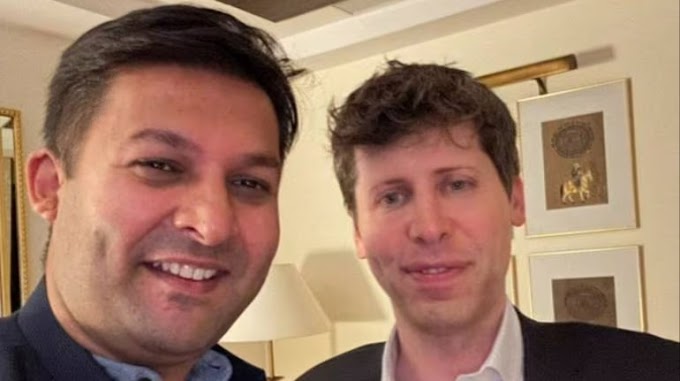CBI to Send Judicial Request to the U.S. in Bofors Case: A New Twist in the Long-Running Investigation
The Central Bureau of Investigation (CBI) is set to send a judicial request to the United States as part of its investigation into the infamous Bofors Case. This marks another significant development in the decades-long investigation into one of the most high-profile corruption scandals in India’s modern history. As the Bofors case continues to make headlines, this latest move highlights the CBI’s determination to bring justice to light and ensure accountability in the international arms deal controversy.
Understanding the Bofors Case
The Bofors Case dates back to the late 1980s when India signed a deal with the Swedish company Bofors for the purchase of 155mm howitzers, crucial for modernizing India's artillery. However, the deal became mired in controversy after allegations surfaced that massive kickbacks were paid to high-ranking officials to seal the contract.
The investigation has implicated key politicians, officials, and international intermediaries, and the case has been a thorn in India’s anti-corruption investigations ever since. Despite decades of investigation, significant progress has been delayed due to legal complications, diplomatic hurdles, and logistical challenges.
The latest move by the CBI to reach out to the United States demonstrates renewed intent to move forward and address outstanding aspects of the investigation.
Why the U.S. is a Crucial Partner in the Bofors Investigation
The CBI’s request to the U.S. underscores the importance of international cooperation in high-profile investigations like the Bofors case. The U.S. is vital to the Bofors investigation because several financial transactions linked to the alleged kickbacks have ties to U.S.-based entities and banks.
Key reasons why the U.S. is critical to this investigation include:
- Cross-border financial trails: Financial transactions tied to Bofors payments have flowed through U.S.-based financial institutions.
- Banking disclosures: U.S. financial institutions can provide transaction data and documents that would be essential to understanding the flow of money connected to the Bofors deal.
- Evidence on intermediaries: Intermediaries, potentially linked to the case, have had financial dealings in the U.S., necessitating a legal pathway to secure their records.
CBI officials believe that by sending this judicial request, they can gain access to financial evidence that would further strengthen their investigation and link key players involved in the alleged Bofors kickback scandal.
What is a Judicial Request?
A judicial request is a formal legal tool used by law enforcement and judicial bodies to seek assistance from other nations’ law enforcement agencies under treaties or international agreements. This can include sharing evidence, bank records, or other critical information necessary for an investigation.
In the Bofors case, the CBI is using this mechanism to request evidence related to financial transactions, account details, and other critical documents linked to the alleged kickback payments. The request will be sent through proper diplomatic and legal channels to ensure compliance with international laws and treaties.
Sending a judicial request to a country like the United States is a standard legal procedure. It will involve identifying specific evidence, requesting cooperation, and obtaining access to relevant financial data that can illuminate the financial trail leading to key individuals implicated in the Bofors case.
What Will the Judicial Request Seek?
While the exact details of the CBI’s judicial request remain undisclosed, it will likely focus on the following key areas:
Bank transaction records:
Financial transactions linked to the Bofors kickbacks may have flowed through U.S.-based financial institutions. A request will aim to obtain these bank transaction details to trace payments and identify the individuals and entities involved.Documentation on intermediaries:
Several intermediaries, who are suspected of facilitating the alleged kickbacks, have been linked to financial accounts in the United States. These intermediaries’ roles and payments could provide a clearer picture of the kickback network.Evidence from U.S.-based financial entities:
U.S.-based financial institutions are key players in financial investigations. Their records, if obtained, could provide insights into the movement of funds and the identities of intermediaries who received or transferred payments related to Bofors.Cooperation with U.S. law enforcement:
Apart from financial records, the CBI will likely request assistance and cooperation from U.S. law enforcement agencies, such as the FBI, in investigating this case. This could include interviews, asset tracing, and other investigative techniques.
The information sought will provide a comprehensive and transparent picture of how funds moved in the Bofors case, potentially implicating politicians, corporate intermediaries, and other individuals accused of orchestrating the alleged financial scheme.
The Challenges of International Investigation
International investigations are never simple. Sending judicial requests involves multiple diplomatic, legal, and procedural complexities, including:
Legal formalities:
Navigating the U.S. legal system, ensuring compliance with treaties, and adhering to formal international law are time-consuming processes.Delays in response:
U.S. law enforcement agencies may take time to review requests, process them, and respond with the necessary information.Cross-border jurisdictional challenges:
Some financial transactions may involve complex jurisdictional questions, which could impede a straightforward investigation.
Despite these challenges, the CBI remains steadfast in its mission to uncover evidence, trace funds, and ensure justice prevails in this decades-long investigation.
What Does This Mean for India-U.S. Relations?
The U.S.-India partnership has strengthened significantly over the last few decades, with the two nations engaging in strategic, economic, and defense collaborations. The judicial request in the Bofors case reflects not only the commitment to tackling corruption but also underscores the U.S.’s role in assisting partner nations to uphold the rule of law.
This request could pave the way for further legal and investigative cooperation between the two countries and strengthen mutual trust in shared investigations against corruption and financial fraud.
Conclusion: A New Chapter in the Bofors Case Investigation
The CBI sending a judicial request to the United States represents a crucial development in one of India’s most high-profile and long-standing investigations. While the case has spanned decades, this recent step signals a fresh effort to piece together the financial trail and gather evidence necessary to ensure accountability.
India will now wait for the U.S.’s response to the judicial request, which could play a pivotal role in unearthing the truth behind the Bofors scandal. With international cooperation, the case might finally see new progress and transparency, providing justice to all parties involved.
As this story continues to unfold, eyes will remain on the U.S. response and the subsequent steps of the CBI as they seek to unravel the complexities of one of India’s most notorious corruption scandals.













